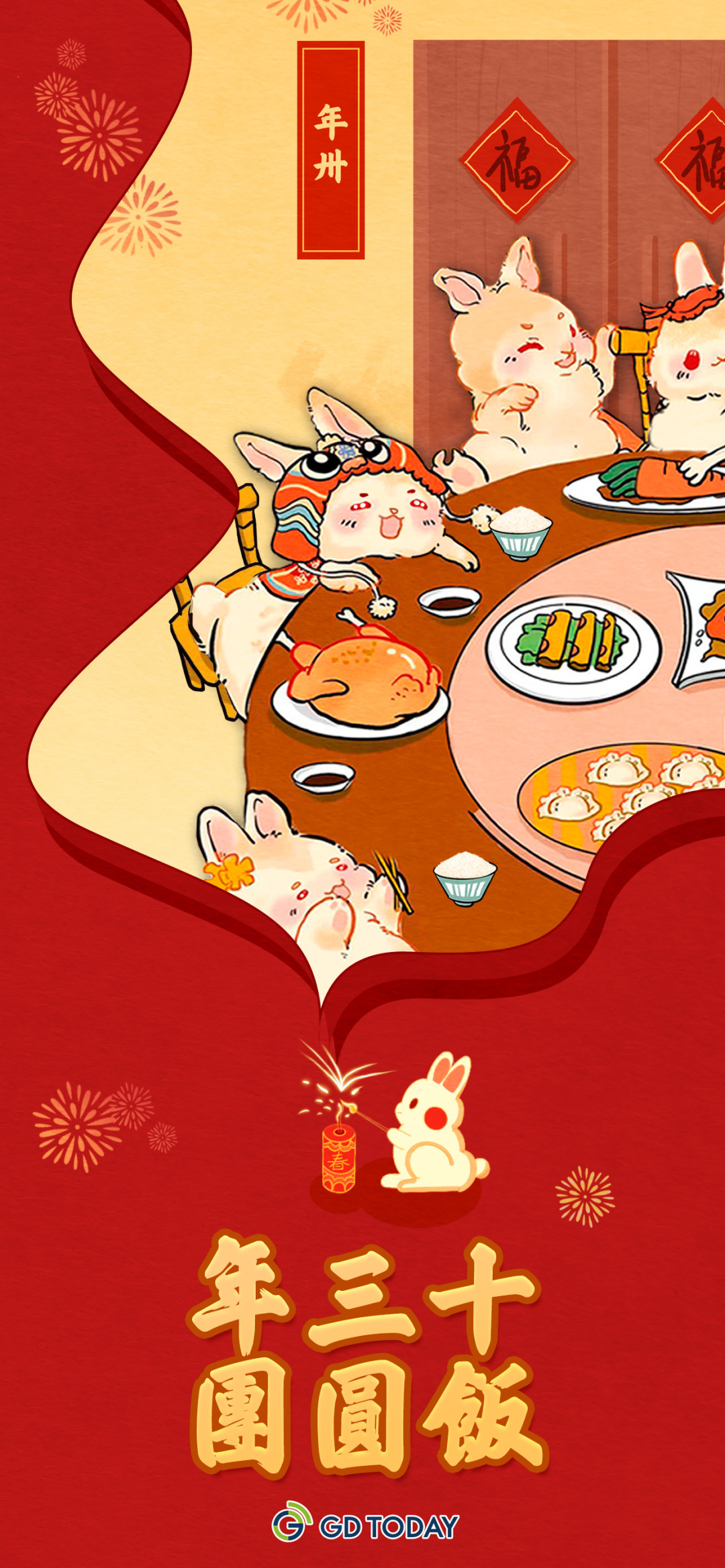
December 30th (Chinese Calendar)
New Year’s Eve dinner (Chinese: 年夜饭), is a great time for a family reunion and having a tête-à-tête with your parents or siblings. It is given the top priority because everything arranged and said at the table has a very propitious connotation and good meaning for the New Year.
On this day, people put on their new clothes, and pay respects to their ancestors and household gods making wishes for the fortune of future generations. In the evening, the family dines together. During this New Year’s Eve dinner, they enjoy good foods such as chicken, fish and rice cake that all have their own auspicious connotations. After dinner, people stay up late to greet the New Year. The young greet the elderly who will give them Hong Bao (lucky money in red envelopes). Guangdong people also visit the flower fair on New Year’s Eve with family and friends.
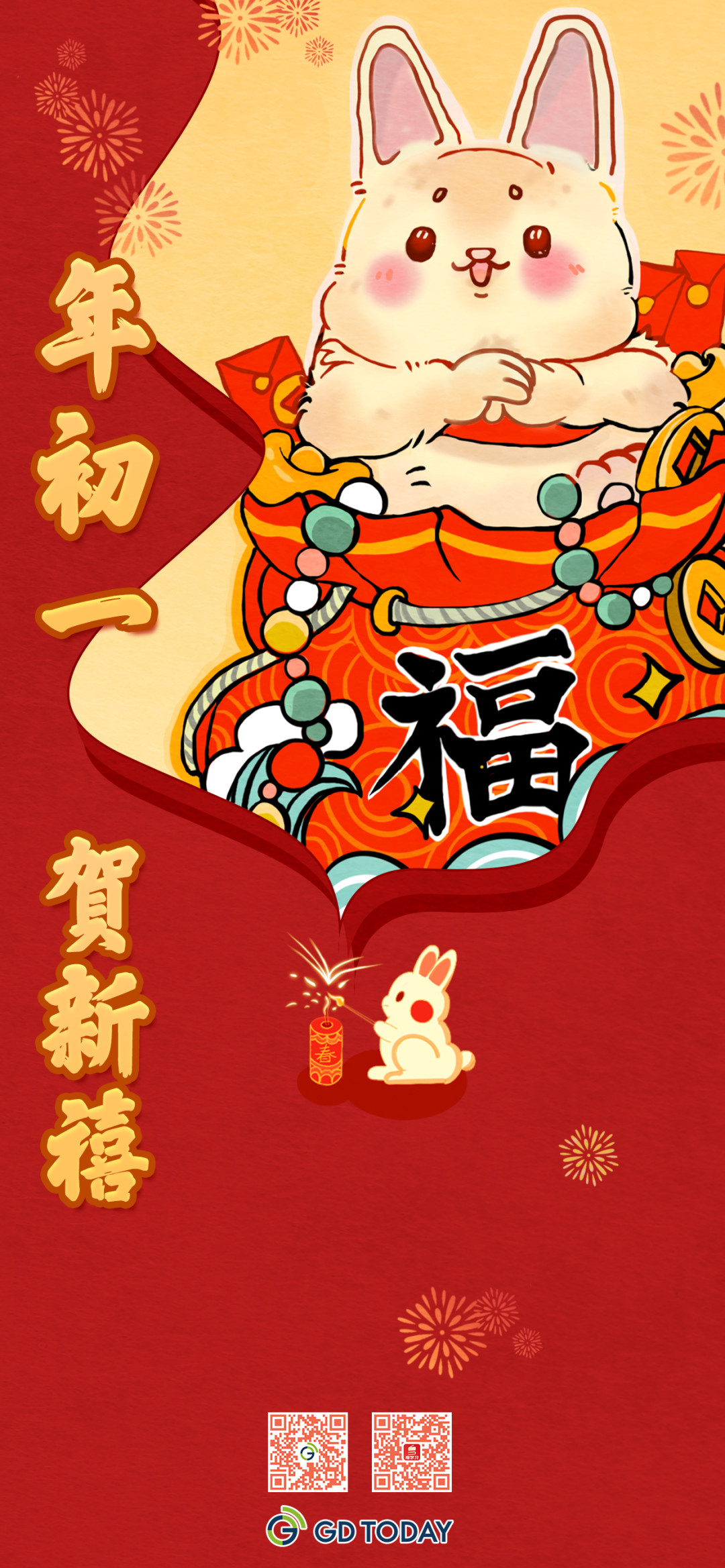
January 1st (Lunar calendar)
New Year call (Chinese: 拜年), is usually the first activity on Chinese New Year's Day, that is, the first day of the first lunar month. When paying a visit to relatives and friends, Guangdong people usually bring some big oranges, and the host will also gift oranges in return.
In addition, the youngsters and children in the family can get ‘Red Pocket Money’ from the elders. The sum may not be a big one, but the custom in itself is a mark of good fortune as one wishes them well.
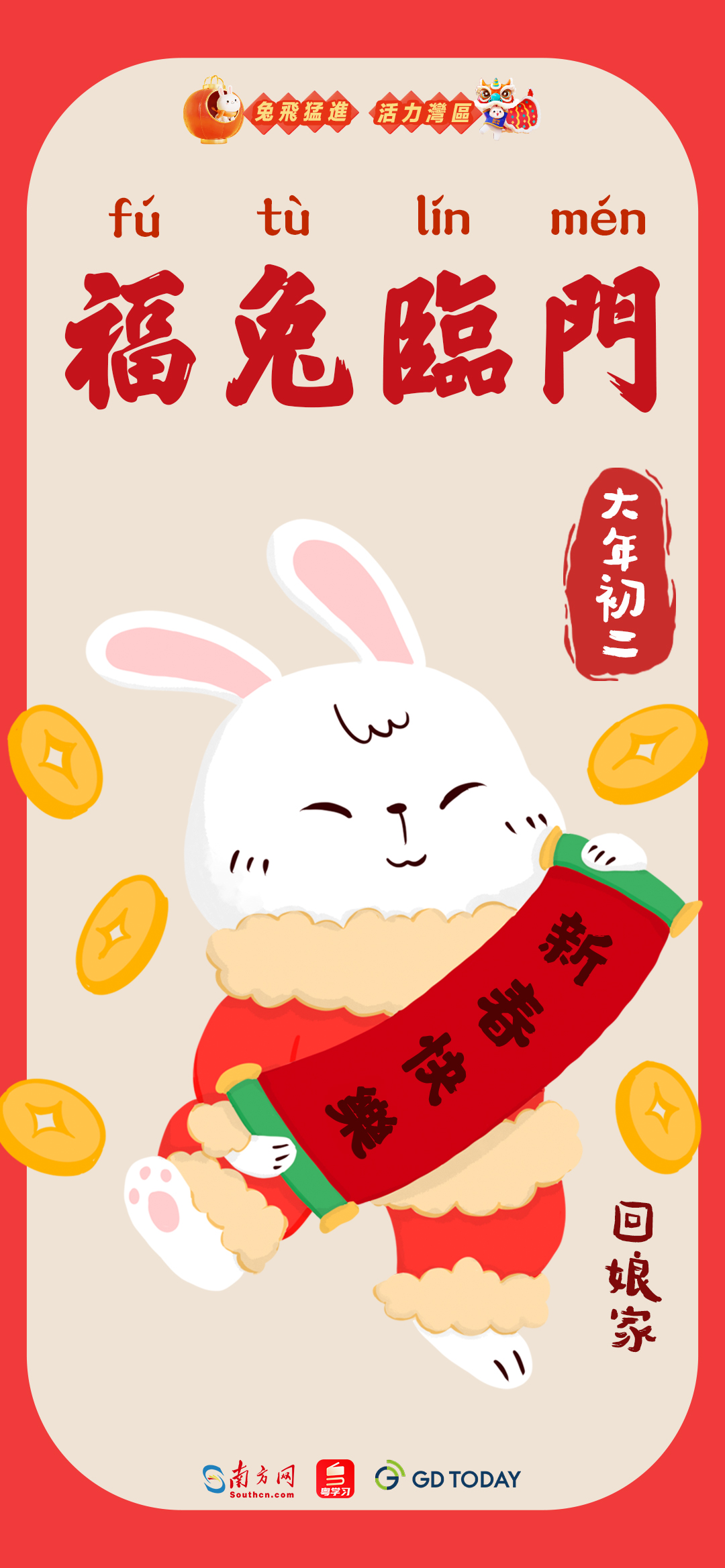
January 2nd (Lunar calendar)
On the second day, married daughters usually go back to their own family to visit parents, relatives and close friends. Traditionally, married daughters didn't have the opportunity to visit their birth families frequently.
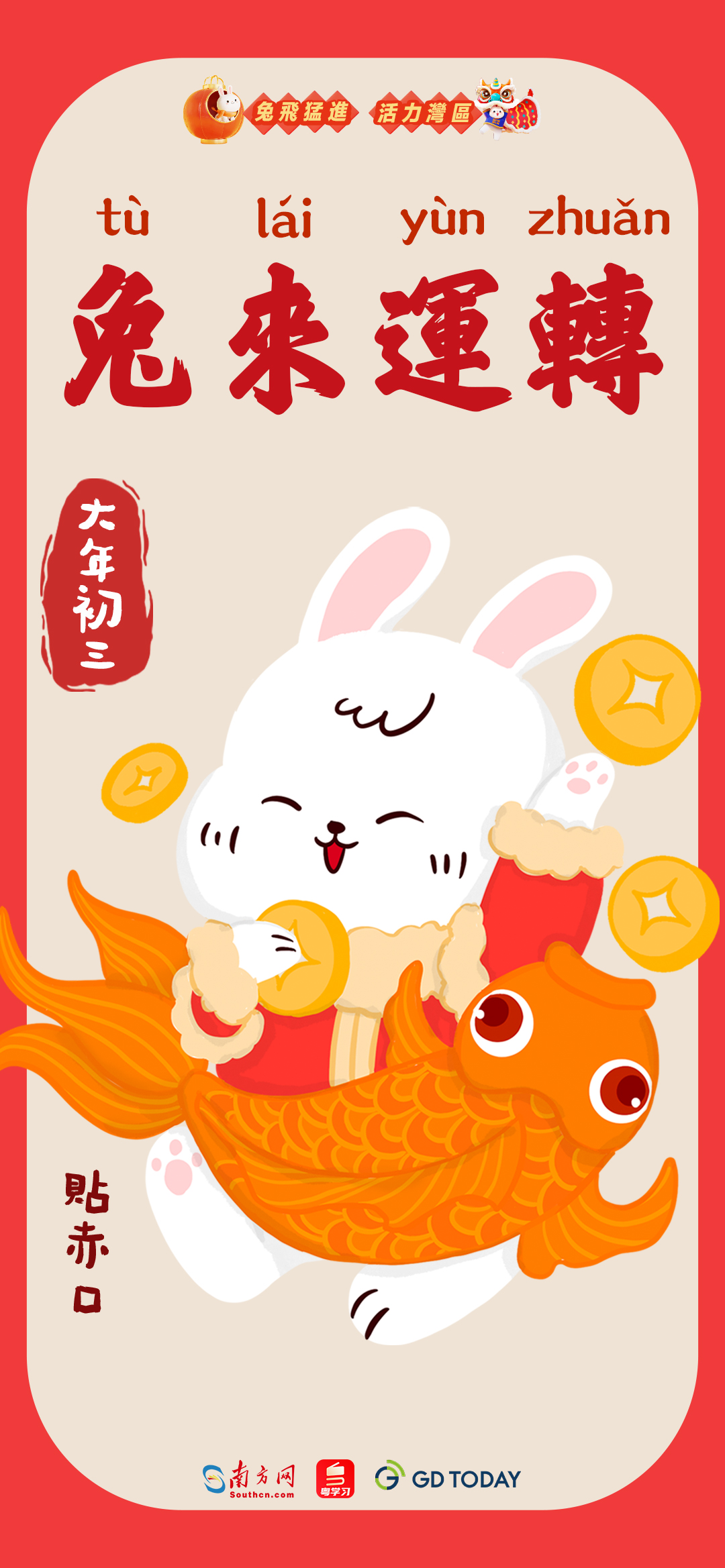
January 3 (Lunar calendar)
Traditionally, the third day is known as "Chigou's Day". Chigou literally means "red dog", an epithet of "the God of Blazing Wrath", and it is considered an unlucky day to have guests or go visiting.
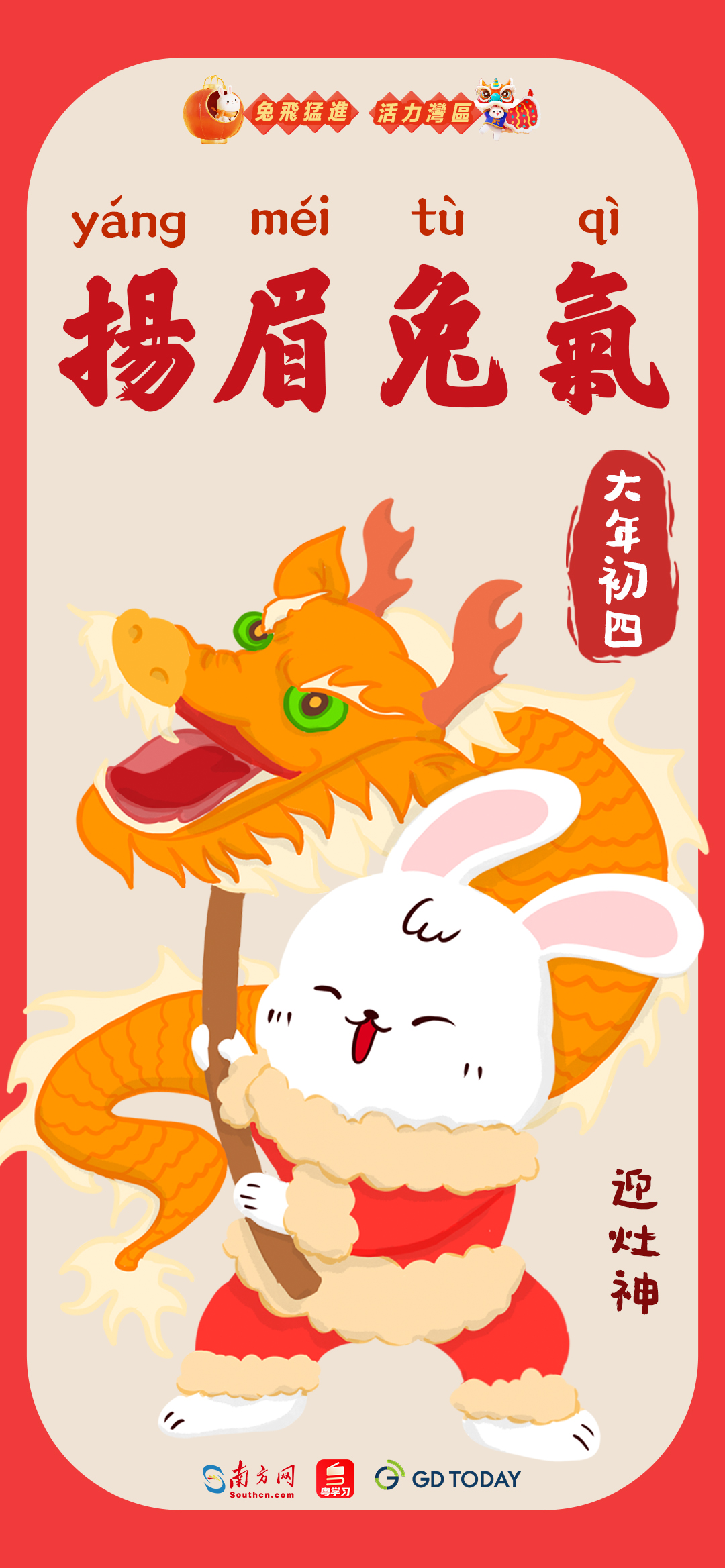
January 4 (Lunar calendar)
The old saying "three rams bring bliss" is connected with the fourth day, which says that by making a good beginning a happy end comes.
According to folklore, it is also the day to welcome back the Kitchen God. On this day, the Kitchen God would check the household and therefore people should not leave home.
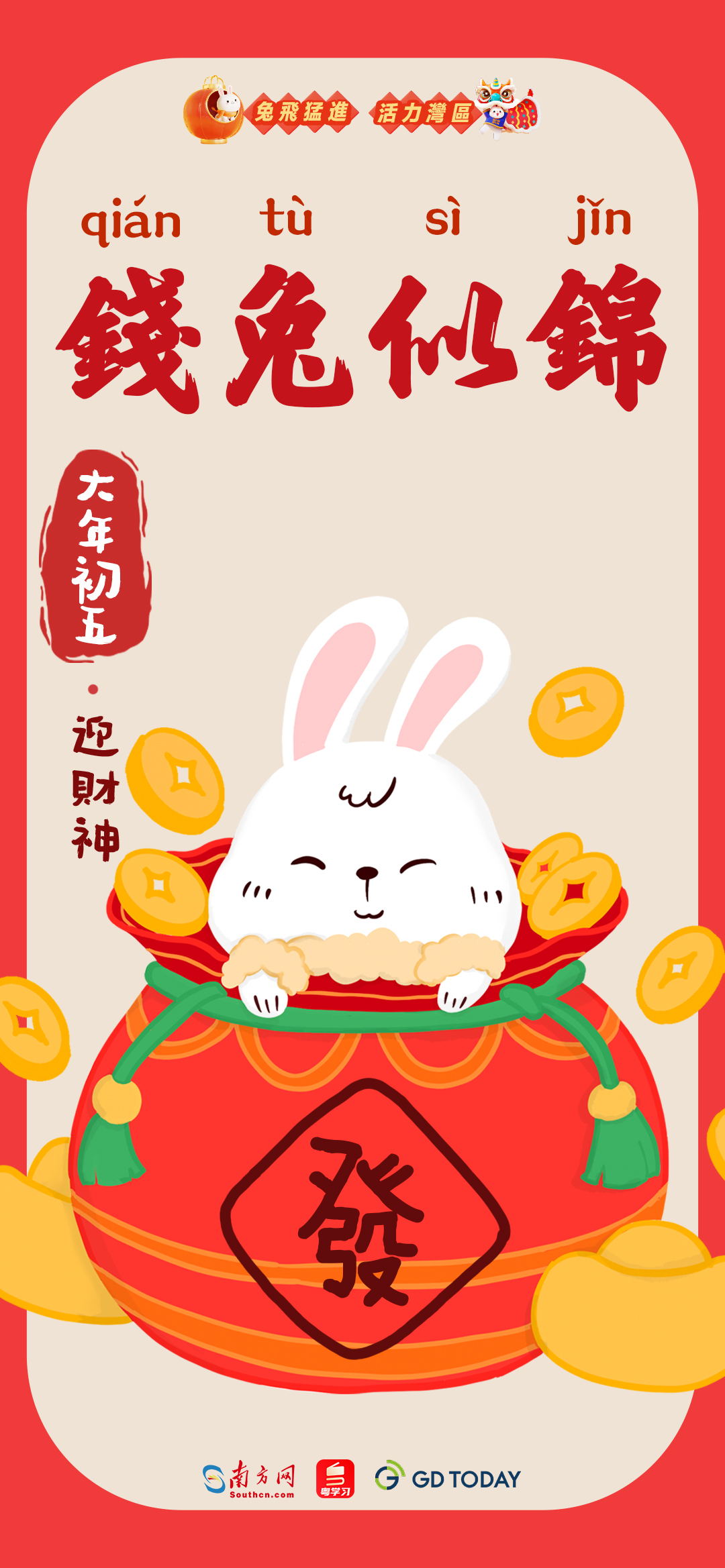
January 5 (Lunar calendar)
The fifth day is the God of Fortune's birthday and people will celebrate this day with a large banquet. This day is also commonly known as the Festival of Po Wu, literally breaking five. According to custom, it is believed that many New Year taboos can be broken on this day.
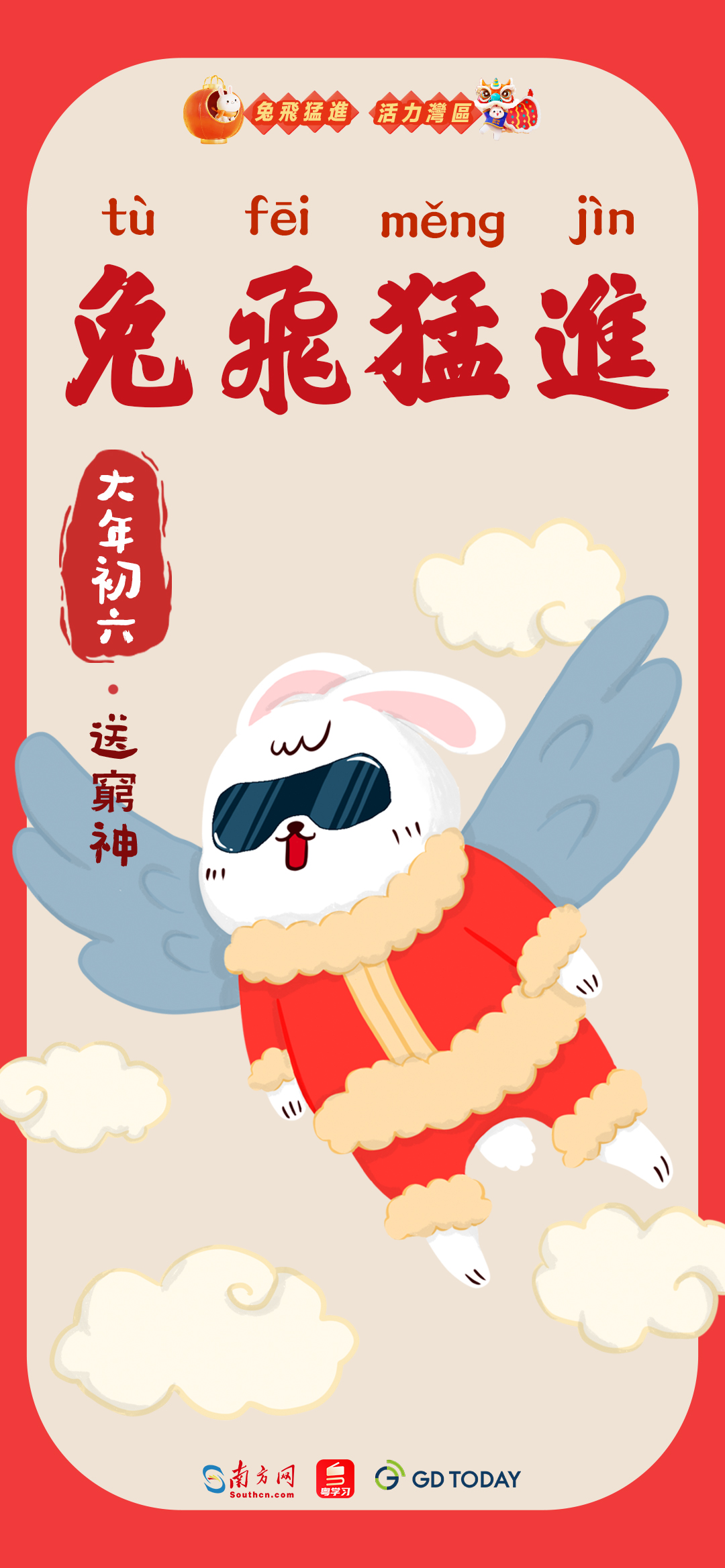
January 6 (Lunar calendar)
According to tradition, families usually send away the Ghost of Poverty on this day. To send away him, Chinese people will usually throw away their ragged clothes, rubbish and other dirty things.
By doing this Chinese people wish to send away poverty and welcome the beautiful days and good luck in the New Year.
January 7 (Lunar calendar)
The seventh day is commonly referred as the "day of man", and in most parts of China people will eat noodles as they symbolize longevity in Chinese culture.
January 8 (Lunar calendar)
The eighth day is believed to be the birthday of millet, an important crop in ancient China. According to folk proverbs, if this day is bright and clear the year will be a harvest year; however, if this day is cloudy or even rainy, the year will suffer from poor harvest.
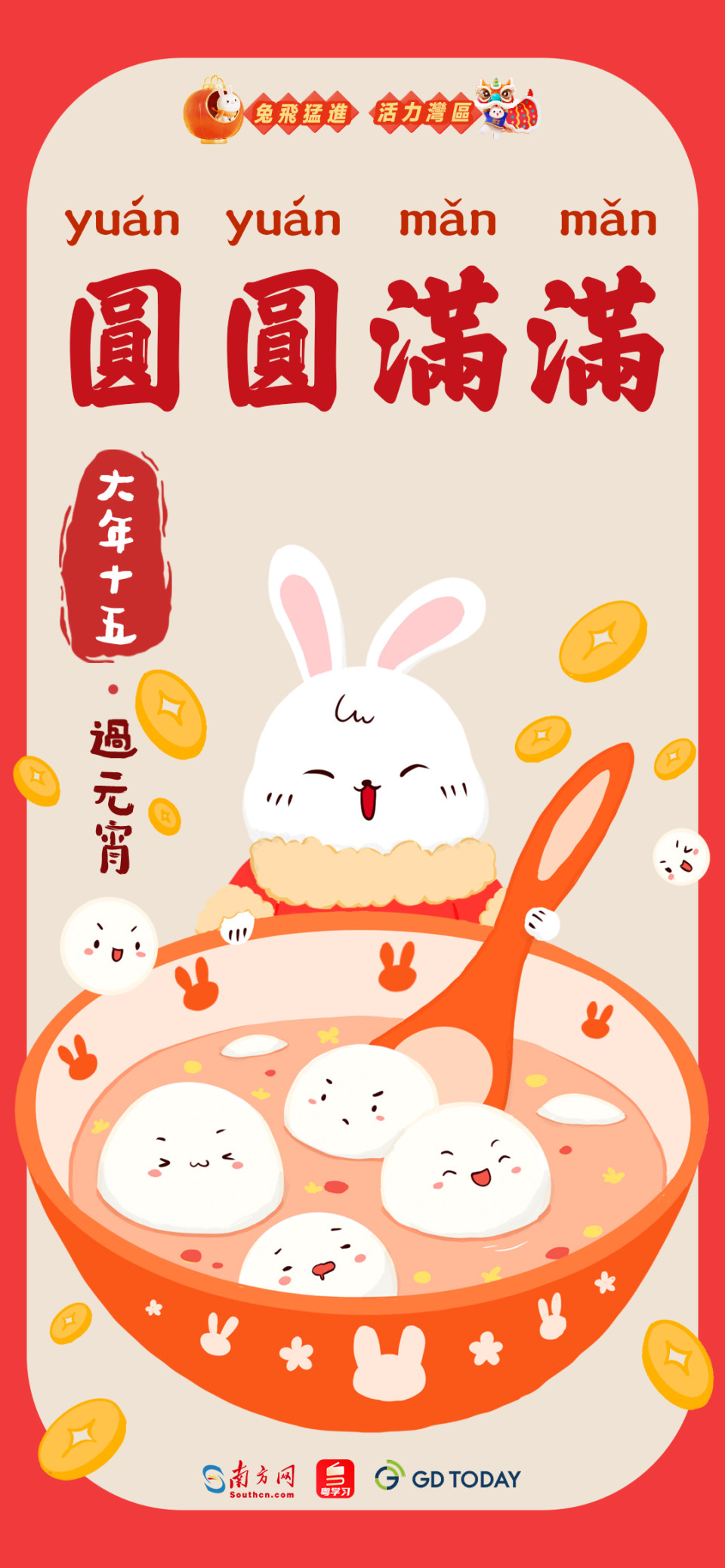
January 15 (Lunar calendar)
The 15th day is the Lantern Festival, which is considered the official end of the Spring Festival celebrations in China. It celebrates the first full moon of the year and marks the departure of winter and the beginning of the spring season.
Traditionally, as the name of the festival implies, people light lanterns, play caidengmi (lantern riddles), attend temple fairs, enjoy the sight of the bright moon and eat food particular to this time of the year such as yuanxiao, which are glutinous rice balls with sweet fillings, or tangyuan, which is a sweet glutinous rice dumpling. Both are sticky with round shapes that denote tuanyuan, or reunion. The festival is the last chance for many families to be together until next year.
Source | GDToday, China Daily
















